The Thatcher Years: Timeline of a changing world
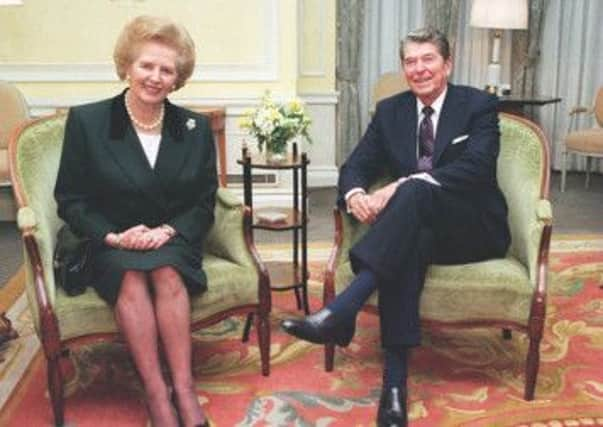

They were years of tumult and frenzy, sometimes savagery, but rarely serenity.
She never lost an election, nor a vote in the House of Commons.
Advertisement
Hide AdAdvertisement
Hide AdIn the end, in the Tory leadership battle, she secured a better vote, and lost, than did John Major, who succeeded her.
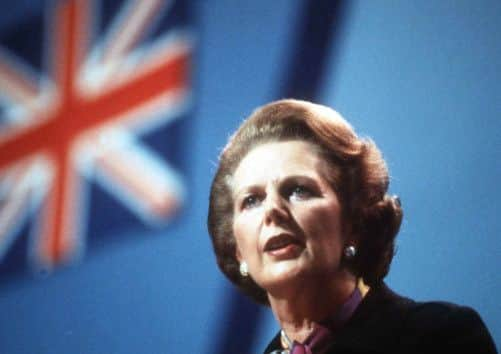

It was indeed a funny old world which pitched out the woman who gave her party and her country perhaps the most spectacular and daring leadership since the Second World War.
These are some of the highlights which marked the Thatcher years of power through the 1980s and beyond:
•1979:
May 4, the Tories win with an overall majority of 43 and the nation has its first woman prime minister;
Advertisement
Hide AdAdvertisement
Hide Ad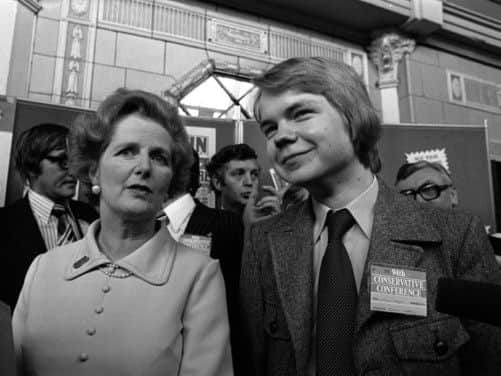

June 12, Geoffrey Howe’s first budget cuts the standard tax rate by 3p, and raises VAT to 15%;
October 24, British exchange controls abolished;
November 29, Mrs Thatcher calls for a £1,000 million cut in Britain’s contribution to the European Community, saying she is not afraid to precipitate a crisis;
December 21, after 14 years of illegal independence Southern Rhodesia, soon to become Zimbabwe, becomes A British colony again.
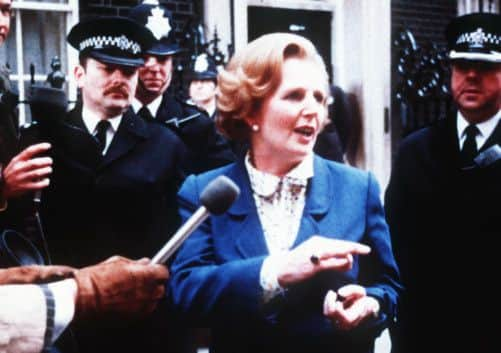

•1980:
January 24, Government outlines package of anti-Soviet measures as protest at invasion of Afghanistan;
Advertisement
Hide AdAdvertisement
Hide AdJuly 15, Government announces plans to replace Polaris with Trident;
August 27, unemployment reaches two million for the first time since 1935;
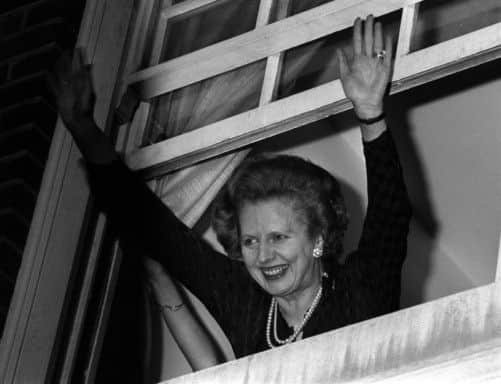

October 15, Jim Callaghan resigns as Labour’s leader to be succeeded by Michael Foot.
• 1981:
January 26, The so-called Gang of Four form Council for Social Democracy leading to the eventual SDP;
Advertisement
Hide AdAdvertisement
Hide AdOctober 15, Norman Tebbit delivers his so-called “on your bike” speech;
• 1982:
January 14, Mark Thatcher is rescued after being missing in the Sahara Desert on the Paris-Dakar rally;
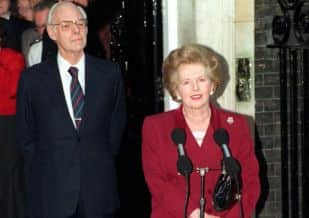

March 4, Government gives go-ahead to satellite TV;
April 2, Royal Marines surrender to Argentine forces in Falkland Islands capital, Port Stanley, and Britain breaks off diplomatic relations with Argentina;
April 5, Francis Pym replaces Lord Carrington as foreign secretary and the Falklands task force sets sail;
April 25, British troops recapture South Georgia;
Advertisement
Hide AdAdvertisement
Hide AdMay 2, The Argentine cruiser General Belgrano is sunk with hundreds of deaths;
May 4, HMS Sheffield hit and sunk by Exocet missiles with loss of 21 lives;
May 12, The QE2, equipped as a troopship, sets sail for the Falklands;
June 14, Argentine forces surrender and Mrs Thatcher is cheered on steps of Downing Street;
Advertisement
Hide AdAdvertisement
Hide AdJune 24, The Prince and Princess of Wales have an heir - William Arthur Philip Louis;
July 9, Michael Fagan gains access to the Queen’s bedroom;
July 20, IRA bombs in Hyde Park and Regents Park kill 11 soldiers and several horses;
October 8, Margaret Thatcher declares: “The NHS is safe with us”;
December 17, Inflation drops to 6.3%, the lowest for 10 years;
• 1983:
Advertisement
Hide AdAdvertisement
Hide AdJanuary 6, Michael Heseltine replaces Sir John Nott as defence secretary;
January 8, Margaret Thatcher visits the Falkland Islands;
February 4, Shops Bill on Sunday trading is defeated in the Commons;
April 1, Britain expels three Russians as spies and a week later Soviet Union expels two British journalists;
April 9, Mrs Thatcher sets the general election date - June 9;
Advertisement
Hide AdAdvertisement
Hide AdJune 9, Tories win landslide victory at the general election;
June 12, Michael Foot resigns as Labour leader;
July 12, Government promises new laws on trade union secret ballots and elections for top union jobs;
July 13, Neil Kinnock narrowly escapes injury when his car overturns on the M4;
October 2, Neil Kinnock, aged 41, elected Labour leader with Roy Hattersley as his deputy;
Advertisement
Hide AdAdvertisement
Hide AdOctober 5, Cecil Parkinson admits he had relationship with his secretary, Sara Keays, and that he is father of her forthcoming child and on October 15 he quits as trade and industry secretary;
November 1, Michael Heseltine says that demonstrators at Greenham Common and elsewhere who get near nuclear missiles are liable to be shot;
November 14, The first Cruise missiles arrive at Greenham Common;
December 20, The Rates Bill is published giving government power to cap spending by local authorities.
•1984:
Advertisement
Hide AdAdvertisement
Hide AdJanuary 25, Staff at GCHQ, Cheltenham, deprived of union membership and two days later Treasury and Cabinet Office civil servants walk out in protest;
March 9, Miners’ strike begins;
March 23, Sarah Tisdall, a secretary in Geoffrey Howe’s private office, is jailed for six months for releasing top secret document about Cruise missiles;
April 17, WPC Yvonne Fletcher murdered when shots fired from Libyan People’s Bureau;
May 3, Tories lose Birmingham City Council in local elections;
Advertisement
Hide AdAdvertisement
Hide AdMay 29, Violence at Orgreave Pit, South Yorkshire, leaves 84 pickets arrested, 41 policemen and 28 pickets hurt; Arthur Scargill arrested at Orgreave and charged with obstruction the following day;
August 18, Clive Ponting, Ministry of Defence civil servant, charged under the Official Secrets Act;
September 16, Prince Harry born to Prince and Princess of Wales;
October 10, High Court fines the NUM £200,000 and Arthur Scargill £1,000 for contempt of court;
Advertisement
Hide AdAdvertisement
Hide AdOctober 11, IRA bomb explodes at Grand Hotel, Brighton, during the Tory Party conference, with three killed and 32 injured;
November 2, Nigel Lawson announced abolition of the pound note.
• 1985:
January 23, House of Lords televised for the first time;
March 4, Miners vote to return to work; Mrs Thatcher claims victory, but Scargill denies defeat;
March 11, Mikhail Gorbachev becomes Soviet leader;
May 11, Total of 56 fans killed in fire at Bradford City’s football ground;
Advertisement
Hide AdAdvertisement
Hide AdMay 22, Liverpool fans rampage at Heysel Stadium in Belgium resulting in deaths of 38 Belgian and Italian fans;
May 31, English football clubs banned from Europe;
July 16, Local Government Bill abolishing the Greater London Council and other metropolitan counties becomes law;
August 22, Fifty-four holidaymakers killed when British Airtours Boeing 737 bursts into flames on take-off from Manchester Airport;
October 6, PC Keith Blakelock hacked to death at Broadwater Farm housing estate in north London;
• 1986:
Advertisement
Hide AdAdvertisement